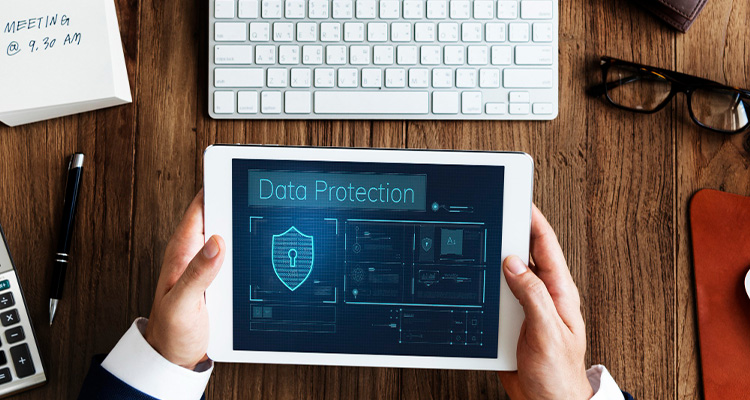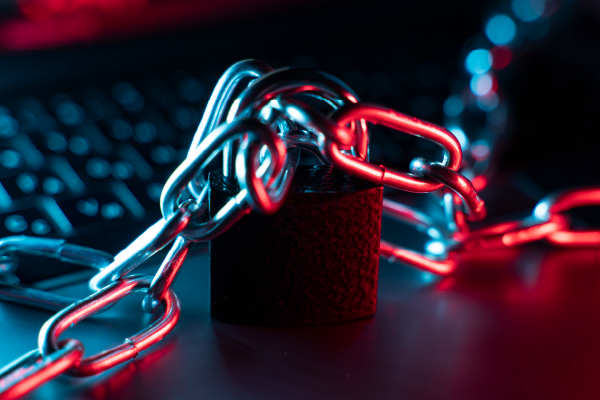Every week there seems to be a story about a data leak, ransomware attack, a mysterious IT outage caused by a user clicking on something they shouldn’t, or a cyber hack, like the recent Uber hacking issue. Whilst there are plenty of tools and apps that can help, there are also some really simple and effective steps that you can take to help ensure the security of your business IT systems and data.
About MIntivo: We value collaboration as a cornerstone of success. In our view, our clients are partners, fostering open communication and a shared vision for growth. We are dedicated to working hand-in-hand to drive success and innovation in your business. Learn more: Cyber Security Services | Managed IT Support | Business IT Consultancy
1. Use better passwords
We all use sensible passwords these days, don’t we? A recent CNBC article suggests that the answer is a firm NO! Based on analysis of a large number of leaked email passwords, you should be shocked and saddened (but perhaps not surprised) to learn that the most common password is “123456”. “Qwerty” makes it into the list at number 3 (but at least it has a capital letter), just ahead of “Password”, at number 4.
The best passwords use numbers, letters (including capitals) and symbols. The longer the password, the harder it is to hack. Don’t use the same password for multiple accounts and avoid using personal information such as date of birth, names of loved ones or information that might be known by others, such as your place of birth. If it all sounds too hard to remember, there are plenty of good password manager apps to help.
2. Backup your data
You would be amazed how many businesses don’t back up their data, and only think about it when it’s too late. From the employee who has nearly finished their important customer presentation, to that vital business spreadsheet that cannot be recreated.
A backup of data needs to be taken regularly. The golden rule is if there is new data, information, or content that you cannot afford to lose, you need to back it up. Many applications, such as Microsoft 365 will automatically save a copy to the cloud. You can use a simple USB drive as an alternative, but ensure the drive is encrypted, in case it gets lost or stolen. Consider storing it away from your primary computer, to minimise risk from fire. You can also take advantage of disaster recovery services if necessary.
3. Take care when working in public
Taking your laptop to a coffee shop meeting, or checking your emails on the train, is a common feature of the way we work, however extra care is needed to protect your data. Avoid leaving your devices or USB drives unattended, and think about who can view your screen over your shoulder. And for the sake of everyone, conduct phone calls and business conversations at an appropriate volume.

4. Think before you click
The mouse and hyper-link combination have made our online lives much more convenient, however there is a risk. Phishing scams work by embedding links in innocent looking emails or text messages, often taking the unsuspecting user to a fake website. Hovering your mouse (without clicking) over a link will often reveal the true destination. Always check, and if in doubt, don’t click and ask your IT manager or IT support partner.
5. Take care before opening an attachment
What better way to install a virus on your computer than downloading and installing it. That’s exactly what could happen if you open an attachment from an unsolicited email. Even if you think you know who the sender is, ask why they are sending an attachment, they could have a virus on their PC too. Good virus software can help, scanning attachments for the signs of trojan programs and computer worms.
6. Lock your screen when you leave your desk
Many people rely on their computer screen automatically locking after a period of inactivity. Don’t! Always lock your device if you must leave it unattended. It only takes a second for someone to access the data on an unlocked screen. If you are going to be away for more than a short period, consider powering down, more secure and better for the planet too. Pressing the windows button and L at the same time will lock your screen.
7. Use secure Wi-Fi connections
Modern devices automatically look for available Wi-Fi connections, but take care, not all connections are equal! Scammers sometimes set up free Wi-Fi connections deliberately to gain access to the data you are sending, including login and password details. It is also possible for hackers to tap into a genuine, but unsecure Wi-Fi connection and see the data you are sending. If you weren’t asked for a security key when you signed on, then the connection is not secure. Be cautious if the key is a simple password too, hackers may already have guessed it.

8. Dispose of old IT equipment carefully
When you delete a file on your computer, it is very rarely actually removed, only the pointer to it is erased. This means that if someone can get hold of the old disk drive from a discarded PC, they can use tools to recreate your deleted files, emails, and data. Performing a full factory installation of an operating system, including overwriting the data, will help. Look for trusted businesses offering WEEE recycling and data wiping, or for small systems remove the hard drive and (carefully) physically destroy it.
9. Be alert, and if in doubt, ask!
Never has the phrase ‘be alert’ been more apt than for online security. Scams and cyber attacks are getting more sophisticated and harder to detect all the time. With the ability to send files and links from seemingly friendly sources, always ask ‘why’ someone would send you a file, link, or strange sounding request. If in doubt, ask someone else for their opinion.
10. Educate your employees and tell your friends
If you run a business, make sure your employees are aware of data security and the simple steps that can be taken. Tell your friends too. A simple way is to share this article with them, but talk to them in advance, so they know to expect a link!
How can Mintivo help?
The steps above will help you protect your personal and business data. More than 60% of UK businesses reported that they have suffered a cyber-attack in the last 12 months. Losses to businesses are, on average, £190,000. Mintivo ensure that we fully understand your systems’ weak points, so we can fix them. Don’t become a statistic – contact Mintivo to talk about how we can help your business.


